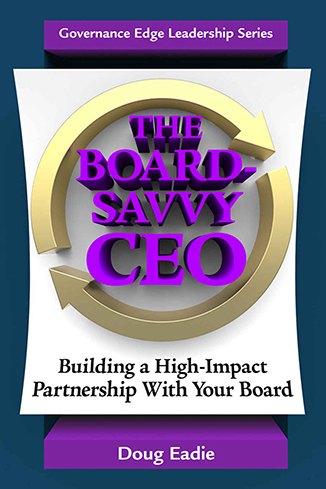As Board Vice Chair and Immediate Past Chair Bob Heil and President & CEO Lee Crume of the Northern Kentucky Tri-County Economic Development Corporation (Tri-ED) explain in the video interview we recently recorded, the future looked bright as 2020 dawned. This thirty-four year-old nonprofit had laid the foundation for significant growth by taking a number of important steps on the organizational development front. The composition of the Board of Directors had been beefed up by significantly increasing the number of Board members representing the for-profit sector, and the Board’s committee structure had been modernized to ensure more meaningful engagement in the governing process. An aggressive young CEO with a robust appetite for innovation had been hired, and the Executive Team had been dramatically strengthened. A detailed blueprint for growth had been fashioned. Tri-ED was on the cusp of a new era. Then came Covid-19, and by March 2020 the challenge wasn’t how to manage growth; it was how to keep the organization running.
Overnight Tri-ED’s major revenue source – a tax on rental car receipts – had decreased by over 90 percent. It’s no surprise that more than one Board member strongly advocated closing the organization down to conserve cash until the Covid-19 crisis passed. It was not difficult to make a compelling case for ceasing operations, laying off staff, and mothballing headquarters. But the Tri-ED Board of Directors and its new CEO made a courageous decision not to succumb to fear. Instead, as Bob and Lee recount in our interview, Tri-ED’s Strategic Governing Team – its Board, President & CEO, and Executive Team – radically re-focused the organization within Tri-ED’s core mission: economic development in the Tri-County region. Rather than actively recruiting businesses around the country, Tri-ED would look inward, focusing on helping existing businesses in the Tri-ED area meet the pandemic challenge, through information sharing and hands-on technical assistance. This was to be financed not by fees for service, but by Tri-ED’s cash reserves.
According to Bob and Lee, the gutsy decision to keep Tri-ED operating with a purely local focus was predicated on two primary factors: the Tri-ED Strategic Governing Team’s passionate commitment to the Tri-ED mission; and faith that if Tri-ED’s cash reserves ran dry, the organizations represented on the Board and other regional stakeholders would step up to the plate, providing the wherewithal to keep Tri-ED’s doors open.
There’s more to the story, as Bob and Lee explain. In their opinion, Tri-ED is a stronger economic development organization from having resisted the siren song of fear and creatively meeting the pandemic challenge, in three respects. First, Board members’ active engagement in closely overseeing Tri-ED’s operations throughout the crisis, including, as Bob observes in the video interview, robust, sometimes contentious, debate created a new Board engagement model. Never, in Bob’s opinion, would the Board return to the passive-reactive approach of yore. Second, Tri-Ed’s courageously and generously focusing on helping local business enterprises weather the Covid-19 storm not only raised Tri-ED’s profile in the three-county region, but also created a deep reservoir of good will in the community. And third, meeting the Covid-19 challenge helped meld the Tri-ED Executive Team into a much more cohesive leadership body characterized by a much higher degree of esprit de corps. A classic case of good works not going unrewarded!






